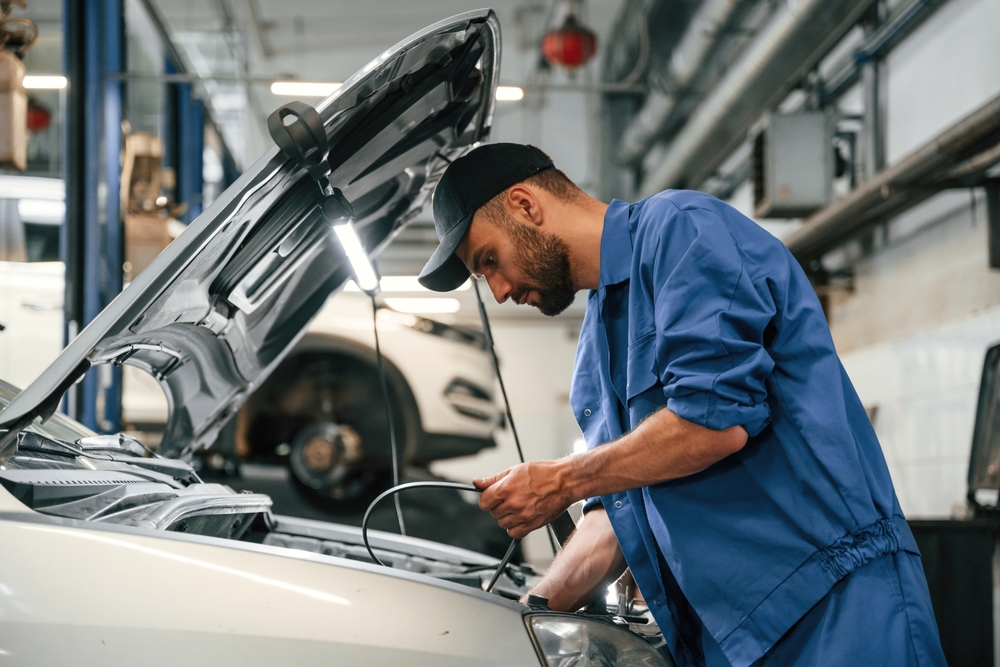Find Affordable Plumbers Near You
Learn about the types of plumbing, services offered, average costs, and the benefits of hiring professional plumbers.
Plumbing is an essential aspect of modern living, ensuring the delivery of clean water and the efficient removal of waste. Whether you're building a new home, renovating, or dealing with plumbing issues, understanding the different types of plumbing and services offered by professional plumbers can help you make informed decisions.
This article provides a comprehensive overview of plumbing types, services, costs, and benefits of hiring professionals, along with tips to find reliable plumbers and methods to extend your plumbing system’s life.
Types of Plumbing Systems
1. Water Supply Plumbing
Function: Delivers potable water from the main water supply to various fixtures and appliances in your home.
Components: Includes pipes, valves, and fixtures that distribute water to sinks, showers, toilets, and appliances like dishwashers and washing machines.
Common Materials: Copper, PEX (cross-linked polyethylene), and PVC (polyvinyl chloride).
2. Drainage Plumbing
Function: Removes wastewater from fixtures and appliances, directing it to the municipal sewer system or septic tank.
Components: Comprises drain pipes, vent pipes, and traps to ensure the safe and efficient removal of wastewater and prevent sewer gases from entering your home.
Common Materials: PVC, cast iron, and ABS (acrylonitrile butadiene styrene).

3. Gas Plumbing
Function: Delivers natural gas or propane to appliances like stoves, water heaters, and fireplaces.
Components: Consists of gas lines, shut-off valves, and fittings to safely transport and control gas flow.
Common Materials: Black steel, copper, and flexible gas lines.
4. Stormwater Plumbing
Function: Manages rainwater runoff, directing it away from your home to prevent flooding and erosion.
Components: Includes gutters, downspouts, and drainage pipes that channel water to appropriate outlets.
Common Materials: PVC and corrugated plastic.
Services Offered by Plumbers & Their Average Costs
Professional plumbers offer a wide range of services to address various plumbing needs, from routine maintenance to emergency repairs. Here’s a look at some common services and their average costs:
1. Pipe Installation and Repair
Services: Installing new pipes, repairing leaks, and replacing damaged sections.
Average Costs: $150 - $400 for minor repairs; $1,000 - $4,000 for extensive re-piping projects.
2. Drain Cleaning and Unclogging
Services: Removing blockages from sinks, toilets, showers, and main sewer lines.
Average Costs: $100 - $250 for standard drain cleaning; $300 - $600 for main sewer line clearing.
3. Water Heater Installation and Repair
Services: Installing new water heaters, repairing or replacing faulty units, and performing routine maintenance.
Average Costs: $600 - $2,000 for water heater installation; $150 - $500 for repairs.
4. Leak Detection and Repair
Services: Identifying and fixing leaks in pipes, faucets, and fixtures.
Average Costs: $100 - $350 for basic leak repairs; $500 - $1,500 for complex issues.
5. Gas Line Services
Services: Installing and repairing gas lines, and ensuring safe and compliant connections.
Average Costs: $200 - $700 for minor gas line work; $1,000 - $5,000 for major installations or repairs.
6. Fixture Installation and Repair
Services: Installing and repairing sinks, faucets, toilets, and showers.
Average Costs: $150 - $400 per fixture for installation; $100 - $300 for repairs.
7. Sump Pump Installation and Repair
Services: Installing or repairing sump pumps to prevent basement flooding.
Average Costs: $500 - $1,200 for installation; $150 - $500 for repairs.
How To Find Plumbers Near You
Finding a reliable plumber near you is crucial for ensuring high-quality service and peace of mind. Here are some tips to help you locate reputable plumbers in your area:
1. Ask for Recommendations
Seek referrals from friends, family, neighbors, or colleagues who have had positive experiences with local plumbers.
2. Check Online Reviews and Ratings
Use websites like Yelp, Google Reviews, and Angie's List to read customer feedback and ratings for plumbing companies in your area.
3. Verify Licensing and Insurance
Ensure the plumber is licensed and insured in your state. This information is usually available on the company’s website or can be confirmed by contacting them directly.
4. Request Multiple Quotes
Get estimates from several plumbers to compare pricing and services offered. Be wary of significantly low bids, as they may indicate subpar service or hidden costs.
5. Evaluate Experience and Specializations
Choose a plumber with experience handling the specific type of service you need. Some plumbers specialize in residential plumbing, while others may focus on commercial or industrial work.
Benefits of Hiring Pros Over DIY Methods
While DIY plumbing repairs might seem cost-effective, hiring a professional plumber offers several advantages:
1. Expertise and Experience
Professional plumbers have the training and experience to diagnose and fix issues quickly and accurately, preventing future problems.
2. Safety
Plumbing work, especially involving gas lines or high-pressure systems, can be hazardous. Professionals follow safety protocols to ensure safe repairs and installations.
3. Quality Workmanship
Licensed plumbers adhere to industry standards and building codes, ensuring long-lasting and compliant work.
4. Time and Convenience
Hiring a professional saves you time and effort, allowing you to focus on other tasks while they handle the plumbing issues.
5. Access to Tools and Parts
Professionals have access to specialized tools and high-quality parts, which may not be readily available to DIYers.
Top Rated Plumbing Companies
Here are some of the top-rated plumbing companies known for their reliability, expertise, and customer satisfaction:
1. Roto-Rooter
Overview: Roto-Rooter is one of the largest plumbing service providers in North America, offering a full range of residential and commercial plumbing services.
Key Services: Drain cleaning, water heater repair, leak detection, and emergency plumbing services.
Why Choose Roto-Rooter: Their extensive network of local franchises ensures prompt and professional service, backed by a strong brand reputation.
2. Benjamin Franklin Plumbing
Overview: Known for their punctual service and commitment to customer satisfaction, Benjamin Franklin Plumbing offers a wide range of plumbing services.
Key Services: Pipe repair and installation, water heater services, and routine maintenance.
Why Choose Benjamin Franklin Plumbing: Their “on-time guarantee” and upfront pricing provide peace of mind and ensure no hidden fees.
3. Mr. Rooter Plumbing
Overview: Mr. Rooter Plumbing provides comprehensive plumbing services with a focus on transparent pricing and exceptional customer care.
Key Services: Sewer line repair, water heater services, and general plumbing repairs.
Why Choose Mr. Rooter Plumbing: Their friendly, professional service and commitment to customer education set them apart from competitors.
4. ARS/Rescue Rooter
Overview: ARS/Rescue Rooter offers plumbing, heating, and air conditioning services with a focus on quality and reliability.
Key Services: Drain cleaning, water heater repair, and emergency plumbing services.
Why Choose ARS/Rescue Rooter: Their certified technicians and satisfaction guarantees ensure dependable and high-quality service.
5. 1-800-Plumber + Air
Overview: Combining plumbing and HVAC services, 1-800-Plumber + Air provides comprehensive home service solutions.
Key Services: Plumbing repairs, HVAC installation and repair, and emergency services.
Why Choose 1-800-Plumber + Air: Their combination of plumbing and HVAC expertise makes them a convenient choice for comprehensive home services.
Methods To Extend Your Plumbing System’s Life
Maintaining your plumbing system can save you money and prevent costly repairs. Here are some tips to extend the life of your plumbing:
1. Regular Inspections and Maintenance
Schedule annual inspections with a professional plumber to identify and address potential issues before they become major problems.
2. Avoid Chemical Drain Cleaners
Use natural methods like baking soda and vinegar to clear minor clogs instead of harsh chemical cleaners, which can damage pipes over time.
3. Fix Leaks Promptly
Address leaks as soon as they are detected to prevent water damage and reduce the risk of mold growth.
4. Insulate Pipes
Insulate exposed pipes in unheated areas to prevent freezing and bursting during cold weather.
5. Monitor Water Pressure
High water pressure can strain your plumbing system. Use a pressure gauge to monitor and adjust the pressure to safe levels (typically 40-60 psi).
6. Install Water Softeners
If your water is hard, consider installing a water softener to reduce mineral buildup and extend the life of your pipes and appliances.
7. Be Mindful of What You Flush
Avoid flushing non-degradable items like wipes, feminine products, or grease down the drains, as they can cause blockages and damage your plumbing system.
Conclusion
Understanding the types of plumbing systems, the services offered by professionals, and the benefits of hiring experienced plumbers can help you maintain a healthy and efficient plumbing system. Whether you need routine maintenance or emergency repairs, choosing a reputable plumbing company ensures high-quality service and peace of mind.










